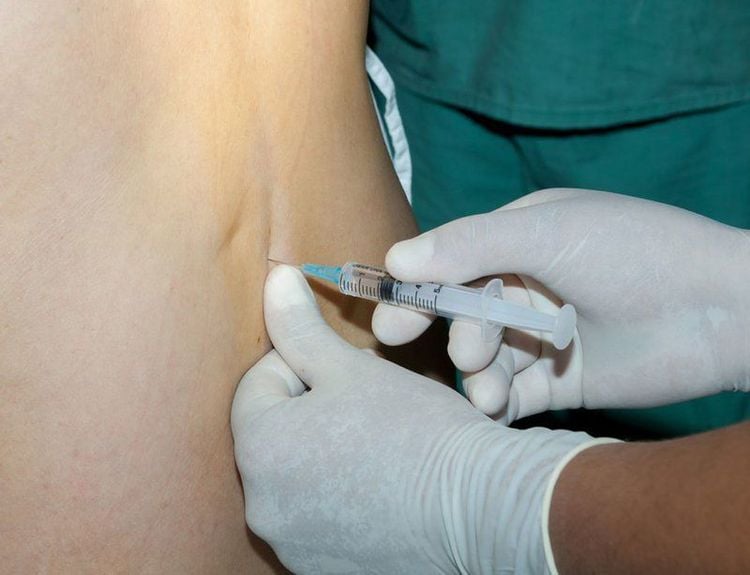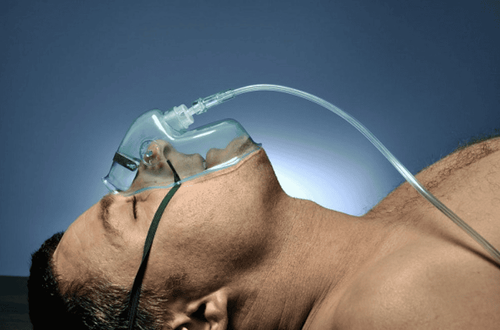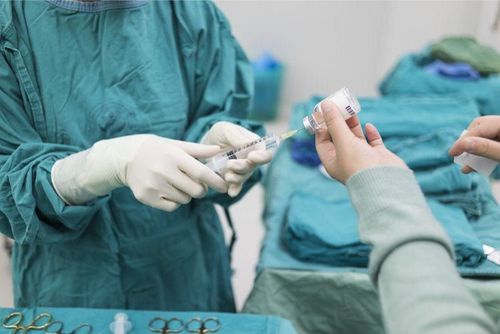This is an automatically translated article.
The article was professionally consulted by Specialist Doctor I Ho Quoc Tuan - Anesthesiologist - General Surgery Department - Vinmec Nha Trang International General Hospital.Anesthesia is a mandatory procedure before any surgery is performed. It helps to ensure that the patient is always in a state of unconsciousness and loss of pain sensation so that the surgery goes smoothly.
1. What are the types of anesthesia?
Before learning about what to know before anesthesia, you need to know what types of anesthesia include? Anesthesia has 3 forms including:
General anesthesia : Make you unconscious, no longer feel pain during surgery. Anesthesia is given as a gas, vapor, or intravenously. Regional Anesthesia: Regional anesthesia is performed by injecting numbing medicine into the nerves in the spinal cord, usually an epidural. Occasionally, intravenous regional anesthesia can also be performed along with sedation. This is called "light sleep". You are not fully asleep, but you are not fully awake either. Local anesthesia : Anesthetizes the area where the procedure is to be performed. Local anesthesia is given by injecting medication or applying it to the skin. It is used for minor procedures such as mole removal.

2. What do patients need to prepare before anesthesia?
Before administering anesthesia, the doctor will ask about your medical history and medications you are taking. Some medications, such as anticoagulants or aspirin, need to be stopped a week or more before surgery. Tell your doctor if you are taking insulin or oral blood sugar-lowering medications.
3. When before anesthesia must stop eating and drinking?
For general anesthesia, you need to stop eating and drinking 6-8 hours before the procedure/surgery. This works to prevent acid reflux. If you need medication, ask your doctor if you can take a small sip of water and on the day of surgery.
4. What happens during anesthesia?
The anesthesiologist or nurse will be with you during the surgery. Medicines will be given to keep you unconscious. For your safety, you will also be monitored for vital vital signs such as heart rate, body temperature, breathing rate and blood pressure during surgery.

5.When can I go out after surgery?
This depends on how long the surgery lasts. Once this is done, you will be off of the anesthesia. You will wake up in the recovery room.
6. Can you remember anything related to the surgery?
General anesthesia is not the same as sleeping. You won't have memorable dreams. You should not remember anything, including the anesthetic procedure.

7. When does the anesthetic wear off?
After surgery, you will be taken to the recovery room to regain consciousness. The nurses will monitor your heart rate, breathing, and other vital signs for about 30 minutes. When the anesthetic wears off, you may feel lightheaded and confused. The effects of the medicine may take several hours to wear off completely.
8. What are the side effects of anesthetics?
Side effects of anesthetics can appear but are mild and temporary in nature, depending on the type of anesthesia. Side effects from anesthesia include:
Nausea and vomiting Dry mouth Sore throat Hoarseness Confusion Chills Drowsiness Muscle pain Side effects from regional anesthesia include:
Headache Mild back pain Difficulty urinating Bleeding under the skin at the injection site Nerve damage (this is rare)

9. When can I go home?
That depends on the type of surgery. Some types of surgery require an overnight hospital stay or longer. If you have same-day surgery, you can go home 1 - 4 hours later.
10. Do you need someone to take you home?
You will need to arrange ahead of time to have someone drive you home. You will not be able to go out for 24 hours after the anesthesia.

11. What to look out for after going home?
If you go home the same day of the procedure, you may notice some mild side effects until the anesthetic wears off:
Sore throat Nausea Muscle pain Dizziness Headache You may also have these effects side effect of the surgery itself. Try to overcome side effects that appear during the first day after the procedure.
Anesthesia is a procedure performed in surgery, treatment,... However, anesthesia also has many potential risks and side effects. Therefore, when choosing anesthesia, patients should choose reputable medical facilities with good facilities, good doctors, and modern medical equipment to give first aid in some emergency cases. grant.
Vinmec International General Hospital is one of the hospitals that strictly applies safe surgical anesthesia practice standards according to international guidelines. With a team of experienced anesthesiologists and nurses, along with modern equipment such as nerve detectors, ultrasound machines, Karl Storz difficult airway control system, anesthesia monitoring system GE's comprehensive AoA (Adequate of Anesthesia) including monitoring of anesthesia, pain and muscle relaxation will deliver high quality and safety, helping patients to have adequate anesthesia, not awake, no residual relaxant muscle after surgery. Vinmec Health System is also proud to be the first hospital in Vietnam to sign with the World Anesthesiology Association (WFSA) towards the goal of becoming the safest hospital for surgical anesthesia in Southeast Asia.
Please dial HOTLINE for more information or register for an appointment HERE. Download MyVinmec app to make appointments faster and to manage your bookings easily.
Reference source: webmd.com














